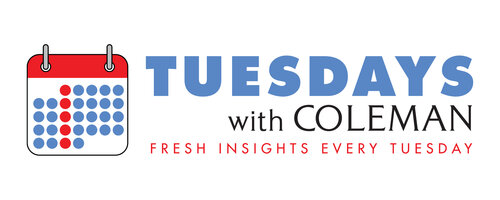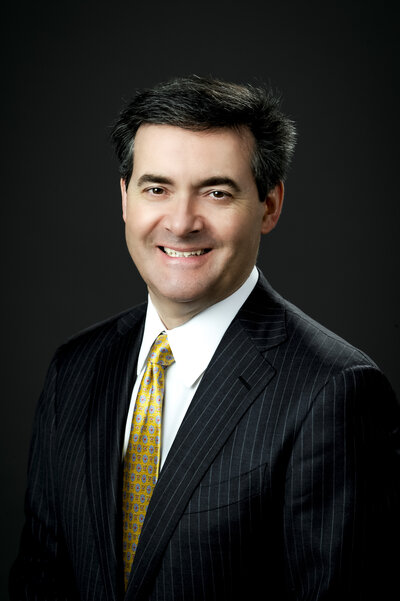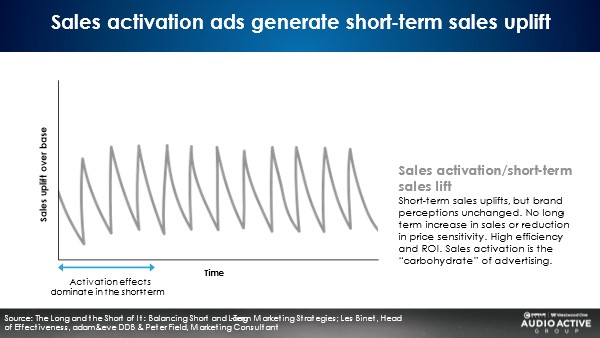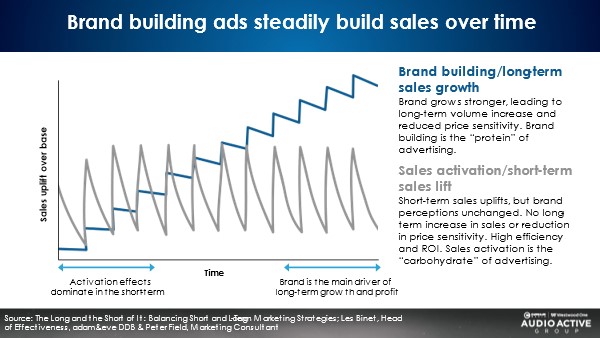
Pierre Bouvard, Chief Insights Officer at Cumulus Media and Westwood One, worked with Coleman Insights in the 90s and was instrumental in the growth of our company. Recently, Pierre and I have had discussions about long-term brand building strategy versus short-term activation tactics. We’ve talked about how favoring short-term strategies over brand building has become something of an epidemic in most advertising. What’s striking is just how similarly many radio stations are following the exact same short-term playbook, often to their peril. I spent an hour with Pierre to dig into the reasons why brand building is not just a good idea, it’s urgently required. While it applies to nearly every brand, he specifically covers why and how radio should pay attention.

Cumulus Media/Westwood One Chief Insights Officer Pierre Bouvard
“The job of brand building advertising is to be known before you’re needed.”
This was the line that began our conversation. Creating awareness and good feelings about your brand is, by far, the most important thing you can do–whether it’s a radio station or a furniture store. We talked about two common marketing tactics: sales activation and brand building.
SHORT-TERM SALES ACTIVATION STRATEGY
For a retailer, a sales activation strategy manifests itself as a sale/event. It may include price drops, promotions, and giveaways. The goal is to get the consumer to do something quickly. Radio stations deploy this strategy all the time in the form of contesting. Calls to action. Listen and win. Text for concert tickets. What is the effect of the sales activation strategy?
Generally speaking, it works…which is why marketers keep doing it. But how it works, and the net effect is important.
Pierre outlines the work of Les Binet and Peter Field, who he calls the “godfathers of marketing effectiveness.” Binet and Field showed that when the sales activation strategy is used, though it can show great ROI, brand perceptions are unchanged. Additionally, there is actually no long-term increase in sales.

You can see a parallel to the way many in radio see the world through “this quarter” or “the next book.” An attempt to justify ratings in the most recent period based on generally inconsequential effects such as some bad weather or a jock being on vacation is pure folly. The reality is your current performance is reflecting things that happened in the past year or a year ago. Focus on the short-term and you get intoxicated with doing promotions or finding a meter. That does nothing to build who you are and what you do long-term.
This is validated by research from marketing consultancy Gain Theory, demonstrating that only 18% of the impact of marketing communication is immediate. 58% of the impact is realized six months or later.
BRAND BUILDING STRATEGY
Just as brand building builds sales over time, at a higher level than the sales activation strategy, radio stations with strong brands build stronger ratings over time.

And, it starts with something that affects how consumers choose your brand and is perhaps more important than anything else…”mental availability.”
Pierre shared a quote from Les Binet and Sarah Carter that he feels is immensely important for radio stations:
“The single most important factor driving brand preference is mental availability. How well known a brand is, how easily it comes to mind. Brands with low mental availability tend to struggle in favor of more familiar rivals or are not considered in the first place.”
If you really think about it, this is contrary to how many programmers think about their radio stations. Are you thinking about extending the amount of time someone listens every day or week? The reality is their lifestyle and habits very well may not permit them to give your station more listening. That’s why the answer is to expand the pie and bring more people into the station. The way to do that is building awareness. That’s done through brand building.
When focusing on brand building, Pierre points to the use of “fluent devices,” and he wishes more radio stations would use them. Exhibit A is a new segment that has become a significant radio advertiser–online sports betting. Almost all advertising for these companies is sales activation: “Download our app, get a $50 bonus”; “Get a free play for signing up,” and so on. But one company has chosen the brand building route.
Featuring comedian JB Smoove as Caesar, commercials for Caesars Sportsbook have featured everyone from Halle Berry as Cleopatra to football’s Manning family. They are unique, funny, and fun. The offer isn’t the star. Caesar is the fluent device.
A fluent device can be a memorable slogan, like Snickers unleashed for years with “You’re not you when you’re hungry.” It’s the lonely Maytag repairman. It’s memorable and fun, and it builds the brand.
Brands shouldn’t employ only a brand building strategy, just as they shouldn’t only employ a sales activation strategy. In fact, Binet and Field themselves say the typical brand should do about 60% brand building and 40% sales activation. The problem is that most are way too heavy into the short-term camp.
Pierre suggests radio stations perform a promo inventory analysis. Determine how much time is being spent screaming about concert tickets and how much time is truly being spent explaining what the station does in a fun way. It’s not about losing the contesting, which serves an important role. It’s about finding the right balance and recognizing the patience required to build a brand is well worth it.
“Imagine I have a lawn that needs work. I watered and fertilized it this week and nothing happened. It didn’t work! That’s the danger of short-term thinking. If we treat building brands the way we treat growing our lawn, you’ll love the end result.”

Brilliant! This is so true in both English and Spanish radio formats. I remember working with Pierre at Coleman Insights in the 90s.
Bob, good to hear from you! I’m sure Pierre will remember you.
All good thoughts -but in a world where budget cuts and bottom line concerns are more important than the product, how can this all be done ? Once upon a time Film House in Nashville was the “go to” place for marketing a radio station on other media. Today they’re shooting videos to sell high-end homes. The world is littered with once successful businesses now cast aside for the bottom line. If competition ever returns (doubtful) for broadcast media these very wise words can be followed.
Appreciate your feedback, Dave.
Ahhh the voice of reality regarding what broadcast has become! Inventory sales and the creativity that once was – is no longer! Thanks for pointing out what the business has become! It is a shame as we look upon our true reflection in the mirror! But for some but we must continue to persevere!
Don’t really agree on the Caesers strategy.
Celebrity and semi-celebrity presence that mostly just clutters up the onramp to a new product/industry.
Marty – it may be true that too many celebrities impedes Caesars’ ability to get the message through. But, the point here is that they are at least trying a brand building strategy as opposed to an activation strategy to differentiate from the others in their category.
The Caesar campaign is a “fame” strategy.
In their book “System1: Unlocking Profitable Growth”, authors John Kearon, Orlando Wood, and Tom Ewing reveal, “Fame is what gets a brand onto a person’s mental shortlist. Getting onto people’s mental shortlists is an essential step for any brand. Fame consistently and strongly correlates with actual market share. The most purchased brands in a market are the most famous. So marketing must always aim for Fame.” They advise, “To build Fame, target wide, touch deeply and be distinctive.”
I truly get the fame/branding strategy as viable, if not essential.
It’s been around for almost one hundred years and still flourishes on my phone via TikTok.
BTW: The Caesers creative is getting much more focused as the campaign goes on…
Pay Me. I will build it, and They will Come. And we’ll do it again next month…